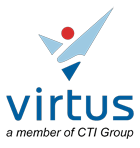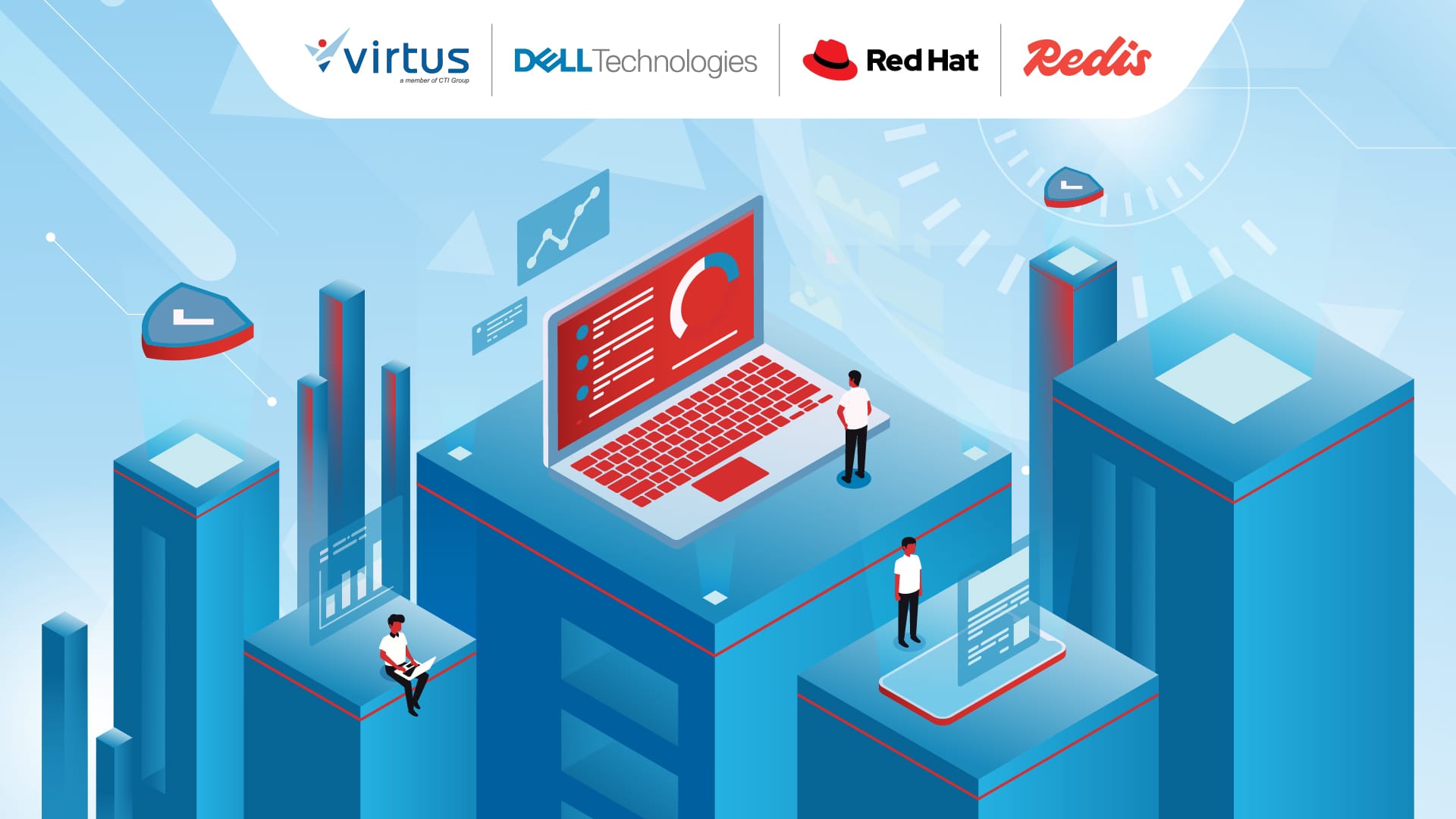As digital transformation accelerates, modern applications have become a critical component across industries, from e-commerce and banking to manufacturing and healthcare. According to Gartner, over 70 percent of organizations have adopted modern application strategies to enhance operational efficiency, scalability, and user experience. Leveraging technologies such as cloud computing, microservices, and AI-driven applications, businesses can now deliver faster, more flexible, and secure services while responding to market demands with agility.
But what sets modern applications apart from traditional ones? Why should businesses adopt them? And how can they maximize their benefits? Find out in this article.
What Are Modern Applications? Definition, Examples, and Business Benefits
A modern application is a type of software built with cloud-native architecture, microservices, and automation technologies like DevOps and CI/CD. These applications enhance development speed, flexibility, and security. Unlike monolithic and difficult-to-update traditional applications, modern applications utilize containerization and API-driven services, enabling dynamic scalability and seamless integration with digital ecosystems.
Modern vs. Legacy Applications
Technology continues to evolve, and so do the standards in software development. Businesses still relying on legacy applications face challenges such as limited scalability, high operational costs, and increased security risks. In contrast, modern applications provide greater flexibility and efficiency.
| Aspect | Modern Applications | Legacy Applications |
| Architecture | Cloud-native, microservices-based | Monolithic, difficult to modify |
| Scalability | Auto-scaling, dynamically adjusts workload | Limited, requires manual adjustments |
| Deployment Speed | CI/CD enables fast and automated releases | Slow release cycles, often require downtime |
| Security | Integrated with DevSecOps, AI-based security | Manual security, more vulnerable to attacks |
| Technology Integration | API-first, easily connects with other services | Difficult to integrate, lacks flexibility |
| Cost Efficiency | Pay-as-you-go with cloud computing | High hardware investment and maintenance |
| Infrastructure Management | Automated via containerization and serverless | Manually managed, requires more resources |
Why Do Businesses Need Modern Applications?
In the digital era, speed and flexibility are key to business success. Here are some reasons why modern applications are essential.
Faster Development and Deployment
With CI/CD pipelines and DevOps automation, developers can release new features and updates quickly without disrupting core operations. Automated deployment ensures efficiency, reduces errors, and enables businesses to stay agile in a fast-changing market.
Seamless Scalability
Cloud-native applications support auto-scaling, allowing system capacity to adjust automatically based on demand. This eliminates the need for large hardware investments while ensuring applications remain responsive under high workloads.
Enhanced Security and Threat Protection
Modern applications incorporate AI-based security, data encryption, and real-time threat monitoring to provide superior protection against cyber threats. These features enable rapid detection and response, minimizing the risk of data breaches.
Higher Operational Efficiency
Technologies like containerization and serverless computing optimize IT resource utilization, reduce operational costs, and enhance system reliability. With a lightweight and cost-effective infrastructure, businesses can focus on innovation rather than maintenance.
Challenges in Developing Modern Applications
While modern applications offer many advantages, their development comes with challenges. Here are some key obstacles businesses must overcome.
Choosing the Right Technology Stack
With a vast selection of technologies—from cloud computing to AI integration—businesses must carefully choose solutions that align with their needs. Poor technology choices can lead to high overhead costs and complex integration issues.
Keeping Up with Rapid Technological Changes
Change is inevitable, and adaptation is the key to sustainability. It requires development teams to continuously learn, adopt the latest trends, and ensure their applications remain relevant.
Understanding User Needs
Beyond advanced features, modern applications must also be user-friendly. Businesses must anticipate and adapt to user expectations to maintain engagement and satisfaction.
Read More: Boost Efficiency Through Effective Business Operations
How Are Modern Applications Used in Business?
The adoption of modern applications is transforming industries by improving operational efficiency, enhancing user experience, and driving competitive advantage. Here are some key examples.
AI and Machine Learning in E-Commerce
AI-powered recommendation systems in e-commerce analyze real-time data to understand customer preferences, personalize shopping experiences, and boost conversion rates.
Cloud-Native and Serverless Computing in FinTech
Speed, security, and cost efficiency are top priorities in FinTech. By leveraging cloud-native and serverless computing, financial services can process transactions faster, reduce downtime, and eliminate reliance on expensive physical infrastructure.
Digital Transformation in Customer Service
AI-powered chatbots are revolutionizing customer service in banking and telecommunications, enabling businesses to enhance customer interactions without increasing workforce costs.
To fully optimize modern applications, businesses need an integrated and scalable infrastructure. Virtus Technology Indonesia (VTI) offers a comprehensive solution featuring Dell Technologies, Red Hat OpenShift, and Redis, ensuring high-performance, efficient, and secure application deployment.
Enhancing Modern Application Performance with Dell, Red Hat, and Redis
Implementing modern applications requires a robust infrastructure that supports high performance, flexibility, and operational efficiency. Without the right technology, businesses may face challenges in scalability, deployment, and resource management. To address these issues, Dell Technologies, Red Hat OpenShift, and Redis provide a comprehensive solution that ensures modern applications run optimally with superior reliability, simplified management, and enhanced security.
Dell Technologies Servers: High-Performance Infrastructure
Dell Technologies Servers deliver scalable and reliable computing infrastructure for modern applications. With cutting-edge multi-core processors, efficient cooling technology, and AI-optimized workload capabilities, these servers ensure stable and efficient performance. Additionally, support for cloud-native architecture enables seamless workload management across on-premises and hybrid cloud environments.
Red Hat OpenShift: Efficient Container Orchestration
Red Hat OpenShift is an enterprise Kubernetes platform that simplifies containerized application management. Its automated deployment and DevOps integration allow businesses to develop and update applications quickly without disrupting operations. OpenShift’s flexibility also enables applications to run across various environments, including hybrid cloud, ensuring scalability and operational efficiency.
Redis: Real-Time Performance with In-Memory Data Store
Redis offers an in-memory data storage solution that processes information in milliseconds. Its low-latency architecture makes it ideal for high-speed applications such as e-commerce, FinTech, and AI-powered platforms. Redis’ caching capabilities also optimize database performance by reducing query loads, allowing applications to handle high transaction volumes efficiently.
The Competitive Edge of Dell, Red Hat, and Redis in Modern Applications
The synergy between Dell Technologies, Red Hat OpenShift, and Redis provides businesses with a future-ready solution that enhances application efficiency, scalability, and security. Dell Technologies ensures seamless hybrid cloud and on-premises implementation, Red Hat OpenShift delivers optimized container orchestration, and Redis accelerates application responsiveness with real-time data processing. This integration not only maximizes performance but also streamlines resource management, allowing businesses to scale faster and innovate without limitations.
Find the Best Modern Application Solutions at Virtus
Virtus Technology Indonesia (VTI), as part of CTI Group, is ready to help businesses implement Dell Technologies, Red Hat OpenShift, and Redis for a seamless modern application transformation. Backed by certified IT experts, Virtus supports clients through consultation, deployment, and post-implementation services to ensure optimal infrastructure performance.
Contact us today and elevate your business with the best modern application solutions!
Author: Danurdhara Suluh Prasasta
Content Writer Intern CTI Group




























